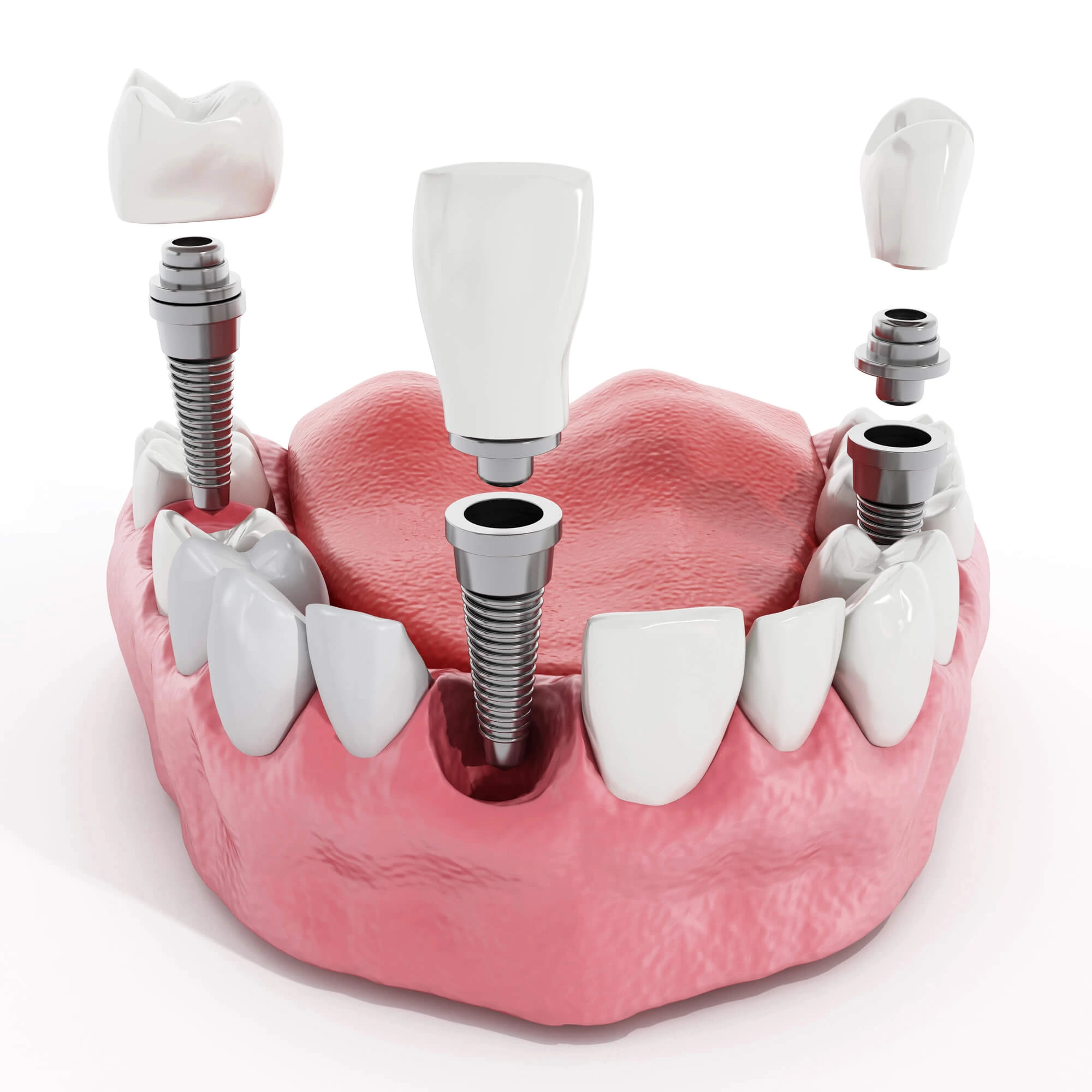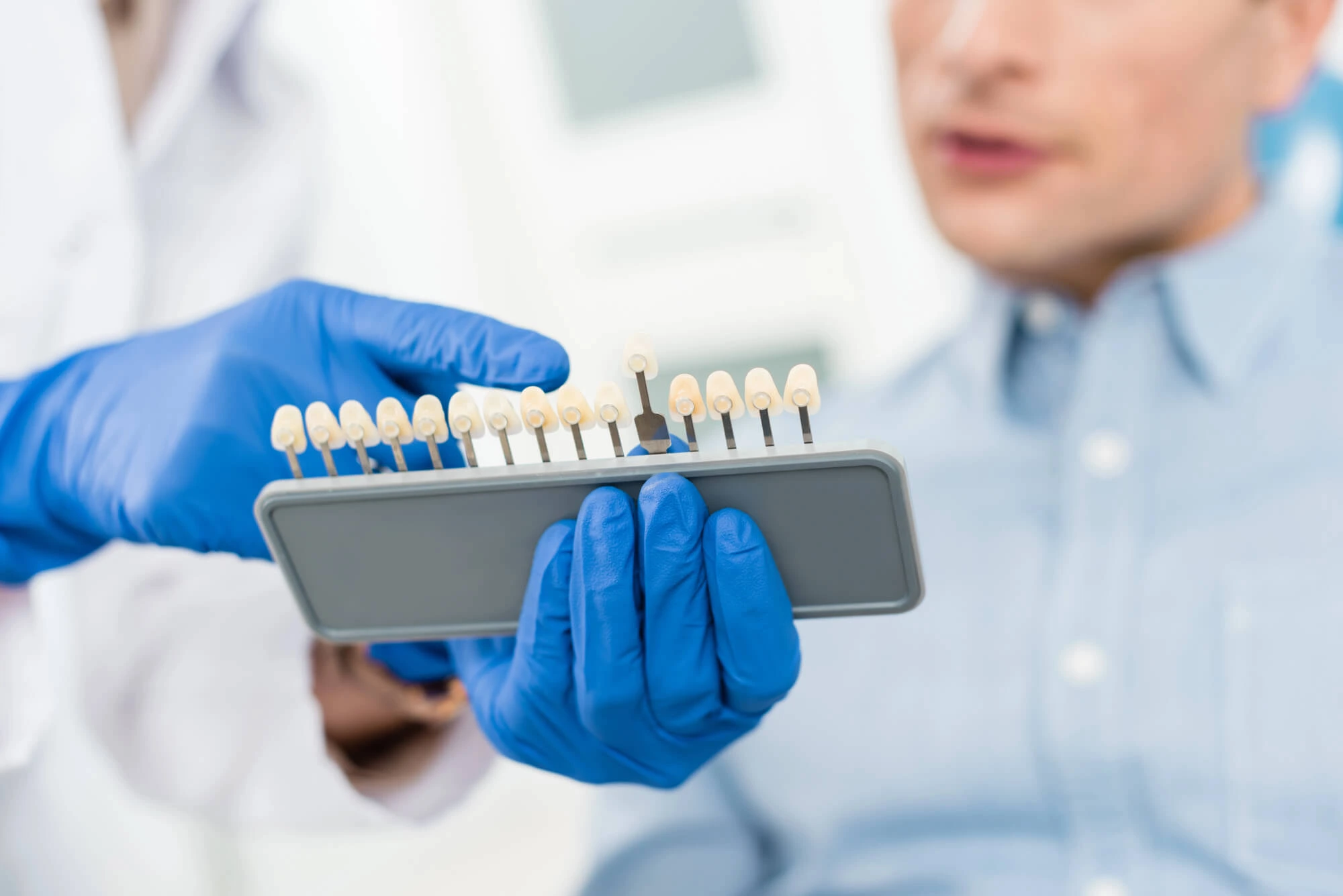Are Dental Implants for Me? 10 Questions You Should Ask Yourself

Losing your first adult tooth might seem scary, but it’s more common than you may think. In fact, approximately 178 million Americans have lost at least one natural tooth. This means 178 million Americans have faced the complex question: Should I get dental implants with a dentist in Fort Walton Beach, or should I look for alternative options?
Dental implants are an unparalleled restorative treatment that looks and feels like natural teeth. However, they’re not for everyone. Before taking the leap, it's key to understand what the process entails by asking yourself these 10 questions.

What Are Dental Implants?
A dental implant is a titanium-based artificial root inserted into the jawbone. An artificial replacement tooth is attached to the top. This structure allows implants to mimic the structure of a natural tooth, allowing you to eat, speak, and smile confidently.
A dental implant has three main parts:
- Threaded Post: This is the artificial tooth root. A provider inserts it into your jawbone during oral surgery to anchor and strengthen your new restoration.
- Abutment: This is a small connector post. It screws into the threaded post and extends just past your gums to connect the implant with your new artificial tooth.
- Restoration: A dental restoration is any prosthetic that repairs or replaces one or more teeth. Some common implant restorations include crowns, bridges, and dentures.
10 Questions You Should Ask Yourself Before Getting Dental Implants
Getting dental implants is a major decision that can significantly improve your quality of life. However, it’s not a one-size-fits-all solution. To make an informed, confident choice, here are 10 important questions you should ask yourself before moving forward:
1. Am I a Good Candidate for Dental Implants?
Not everyone is an ideal candidate for implants. To qualify, you typically need healthy gums, sufficient jawbone density, and good oral hygiene. People with uncontrolled chronic conditions (like diabetes) or habits like smoking may face complications. If you struggle with good oral hygiene, other options may be better for you.
Your dentist will evaluate your health and medical history to determine whether implants suit you.
2. Do I Have Enough Jawbone for Implant Support?
Dental implants are anchored into the jawbone. If you’ve had missing teeth for a while, bone loss may have occurred in that area, making it harder to place the implant. Dentists often perform a CT scan or X-ray to analyze your jawbone. If insufficient, you may need a bone graft before implant placement.
3. Am I Willing to Commit to the Treatment Timeline?
Unlike dentures or bridges, dental implants aren’t a quick fix. The entire process can take several months, from consultation and surgery to healing and crown placement. Healing time after implant placement tends to range from 3 to 6 months, because the titanium post needs to osseointegrate, or blend in, with your natural jawbone.
This period may seem too extensive for many, so make sure you’re willing to make that kind of commitment.
4. What Are the Costs Involved, and Can I Afford Them?
Implants can be expensive, especially if multiple teeth are involved or additional procedures like bone grafts or sinus lifts are needed. While dental insurance may cover part of the cost, it often doesn't cover everything. Understanding the full financial picture—including possible payment plans—is essential before proceeding.
For example, our dental office offers financing plans to help patients access the treatments they need, with no money down or upfront costs and no interest. So, make sure to ask in detail!
5. What Are the Risks and Possible Complications?
Like any surgical procedure, dental implant placement comes with risks. These may include infection, nerve damage, implant failure, or sinus issues. Choosing a skilled, experienced implant dentist can help minimize these risks. However, you should still be aware of what can go wrong and how issues will be handled if they arise.

6. Am I Willing to Practice Excellent Oral Hygiene?
Dental implants require the same level of care as natural teeth, if not more. Brushing, flossing, and regular dental checkups are essential to prevent gum disease, which can lead to implant failure. If your oral hygiene has been inconsistent, you must commit to improving it to ensure successful treatment.
7. How Experienced Is My Dentist with Implants?
The success of dental implants largely depends on the experience and skill of the professional placing them. Ask your dentist about their training, how many implants they’ve placed, and their success rate. You may also want to ask to see before-and-after photos or patient testimonials.
8. What Type of Implants and Materials Will Be Used?
Not all implants are created equal. The materials (usually titanium or zirconia) and implant brand can affect durability, aesthetics, and cost. It’s worth asking your dentist what implant they use and why. Some systems, like titanium posts, are more researched and widely used. Others, such as zirconia, are newer or less proven.
9. What Will the Result Look and Feel Like?
It’s important to have realistic expectations. While implants look and function like natural teeth, they may not feel the same initially. Ask your dentist to explain what the result will be like in terms of appearance, fit, and bite. Understanding the outcome helps prevent disappointment later.
10. What Are the Alternatives to Dental Implants?
Dental implants aren’t the only restorative option available. Dental bridges are a quicker and more affordable alternative if treatment times and costs are a concern. On the other hand, if you have severe tooth loss, dentures can be an option worth considering.
It’s important to consult a professional dentist who can explain the pros and cons of each choice and help you make a fully informed decision. A good dentist will review all your options with you, not just push you toward implants.

Find a Dentist in Fort Walton Beach Qualified to Accompany You Throughout the Implant Journey
Dental implants have become one of the most popular and effective ways to replace missing teeth. They offer a permanent solution that looks, feels, and functions like natural teeth. However, like any surgical procedure, getting dental implants requires careful consideration and planning.
Luckily, with the right dental office, the intricacies of this process can be smooth and trouble-free. At the office of Dr. Tony Clark, we’re committed to helping you achieve the healthiest version of your smile. Whether through detailed diagnosis or with a compassionate attitude, we want to answer all your implant-related doubts. Reach out and get a step closer to the smile of your dreams!







